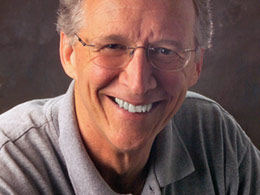
Radical Effects of the Resurrection
If in Christ we have hope in this life only, we are of all people most to be pitied. . . . Why are we in danger every hour? 31 I protest, brothers, by my pride in you, which I have in Christ Jesus our Lord, I die every day! 32 What do I gain if, humanly speaking, I fought with beasts at Ephesus? If the dead are not raised, "Let us eat and drink, for tomorrow we die." . . . But in fact Christ has been raised from the dead, the firstfruits of those who have fallen asleep. (1 Corinthians 15:19, 30-32, 20)
Paul ponders how he would assess his lifestyle if there were no resurrection from the dead. He says it would be ridiculous-pitiable. The resurrection guided and empowered him to do things which would be ludicrous without the hope of resurrection.
For example, Paul looks at all the dangers he willingly faces. He says they come "every hour." On frequent journeys, in danger from rivers, danger from robbers, danger from my own people, danger from Gentiles, danger in the city, danger in the wilderness, danger at sea, danger from false brothers. (2 Corinthians 11:26)
Then he considers the extent of his self-denial and says, "I die every day." This is Paul's experience of what Jesus said in Luke 9:23, "If anyone would come after me, let him deny himself and take up his cross daily and follow me." I take this to mean that there was something pleasant that Paul had to put to death every day. No day was without the death of some desire.
. . . with far greater labors, far more imprisonments, with countless beatings, and often near death. 24 Five times I received at the hands of the Jews the forty lashes less one. 25 Three times I was beaten with rods. Once I was stoned. Three times I was shipwrecked; a night and a day I was adrift at sea . . . 27 in toil and hardship, through many a sleepless night, in hunger and thirst, often without food, in cold and exposure. 28 And, apart from other things, there is the daily pressure on me of my anxiety for all the churches. (2 Corinthians 11:22-28) Then he recalls that he "fought with beasts at Ephesus." We don't know what he is referring to. A certain kind of opponent to the gospel is called a beast in 2 Peter 1:10 and Jude 10. In any case, it was utterly disheartening.
We do not want you to be ignorant, brothers, of the affliction we experienced in Asia. For we were so utterly burdened beyond our strength that we despaired of life itself. (2 Corinthians 1:8) So Paul concludes from his hourly danger and his daily dying and his fighting with beasts that the life he has chosen in following Jesus is foolish and pitiable if he will not be raised from the dead. "If in Christ we have hope in this life only, we are of all people most to be pitied." In other words, only the resurrection with Christ and the joys of eternity can make sense out of this suffering.
If death were the end of the matter, he says, "Let us eat and drink, for tomorrow we die." This doesn't mean: Let's all become gluttons and drunkards. They are pitiable too-with or without the resurrection. He means: If there is no resurrection, what makes sense is middle-class moderation to maximize earthly pleasures.
But that is not what Paul chooses. He chooses suffering, because he chooses obedience. When Ananias came to him at his conversion with the words from the Lord Jesus, "I will show him how much he must suffer for the sake of my name" ( Acts 9:16), Paul accepted this as part of his calling. Suffer he must.
How could Paul do it? What was the source of this radical obedience? The answer is given in 1 Corinthians 15:20: "But in fact Christ has been raised from the dead, the firstfruits of those who have fallen asleep." In other words, Christ was raised, and I will be raised with him. Therefore, nothing suffered for Jesus is in vain (1 Corinthians 15:58).
The hope of the resurrection radically changed the way Paul lived. It freed him from materialism and consumerism. It gave him the power to go without things that many people feel they must have in this life. For example, though he had the right to marry (1 Corinthians 9:5), he renounced that pleasure because he was called to bear so much suffering. This he did because of the resurrection.
This is the way Jesus said the hope of the resurrection is supposed to change our behavior. For example, he told us to invite to our homes people who cannot pay us back in this life. How are we to be motivated to do this? "You will be repaid at the resurrection of the just" (Luke 14:14).
This is a radical call for us to look hard at out present lives to see if they are shaped by the hope of the resurrection. Do we make decisions on the basis of gain in this world or gain in the next? Do we take risks for love's sake that can only be explained as wise if there is a resurrection?
Do we lose heart when our bodies give way to the aging process, and we have to admit that we will never do certain things again. Or do we look to the resurrection and take heart?
We do not lose heart. Though our outer self is wasting away, our inner self is being renewed day by day. For this light momentary affliction is preparing for us an eternal weight of glory beyond all comparison. (2 Corinthians 4:16) I pray that we will rededicate ourselves during this Easter season to a lifetime of letting the resurrection have its radical effects.
Pastor John
© Desiring God




















 >
>